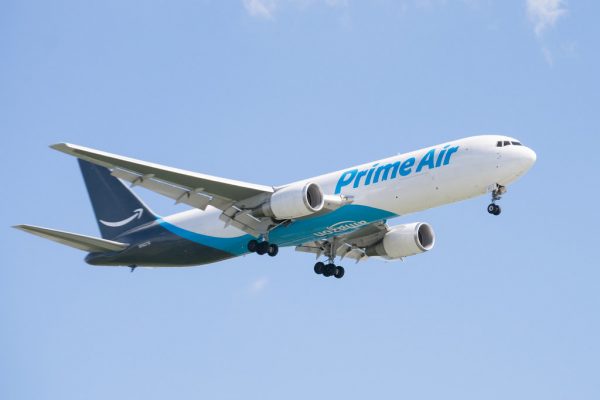
Amazon Air is taking flight. The online retailer is attempting “to cut out the middleman” and is well on the way to doing so.
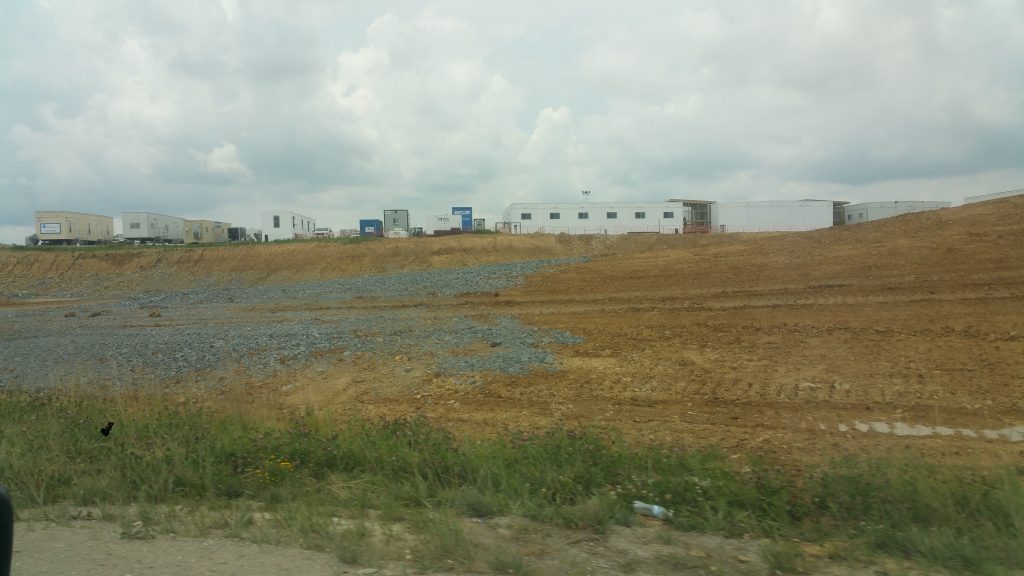
Amazon begin in 1995 when a young businessman, Jeff Bezos, read that online sales would soon be a large percentage of total retail sales. Bezos thought about it and decided that an item that could be sold for a handsome price vis a vis its size and weight was a book. So, Bezos began buying books, storing them in his garage, selling them online and mailing them from the post office. Soon he quit his day job to focus full time on his online business.
Amazon
He decided to name the business, Amazon. I remember when I first heard the name. In 1997 or 1998, I was walking across the University of Washington campus where the Air Force had sent me for doctoral studies. Walking across a quad loaded with beautiful cherry trees, a young lady handed me a billet and asked me if I wanted to sell my books back (it was the end of the quarter). I expected her to be from the University Bookstore. However, she told me that Amazon wanted to buy my books. “Who is that”, I asked. The rest, as they say, is history.
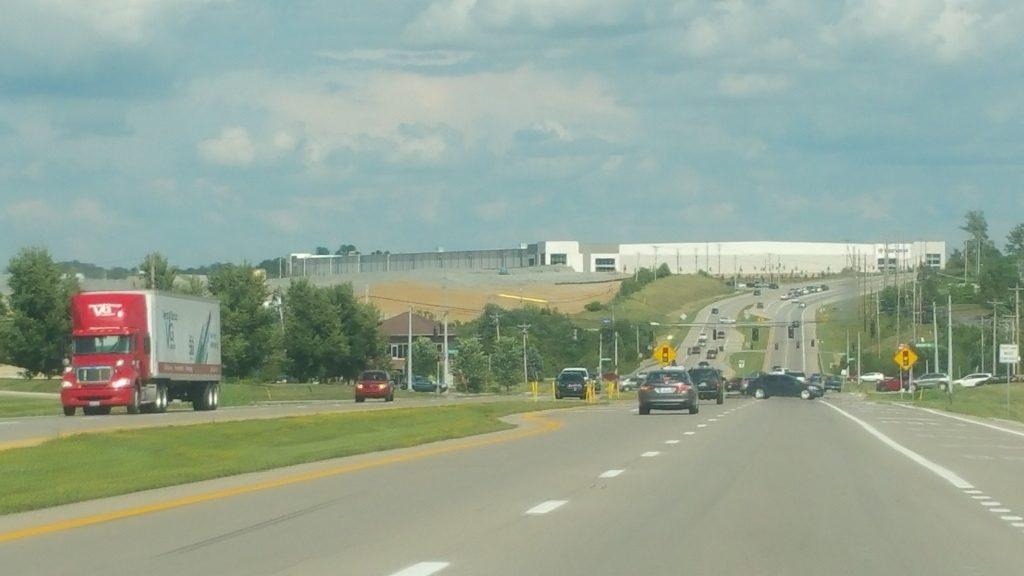
Bezos focused on books for the first few years before moving to other online retail items. In the early years (it was before the tech bubble burst) Amazon stock was climbing like a rocket, while the company lost money every quarter. Bezos famously said that people didn’t care if Amazon made money, eventually they would.
At one point in those early years Amazon became more valuable than Weyerhaeuser Lumber the corporate giant located 23 miles to the south in Tacoma. Weyerhaeuser had thousands of acres of timber and sawmills and made a steady profit. Amazon had a distribution center and a net loss. Those were wacky business days.
Pressures Rise
When the company went public, pressure began to mount to actually make a profit. Bezos hired some very sharp people who knew a lot about outsourcing, offshoring, distribution channels, supply chains, etc. Soon the company was turning a profit.
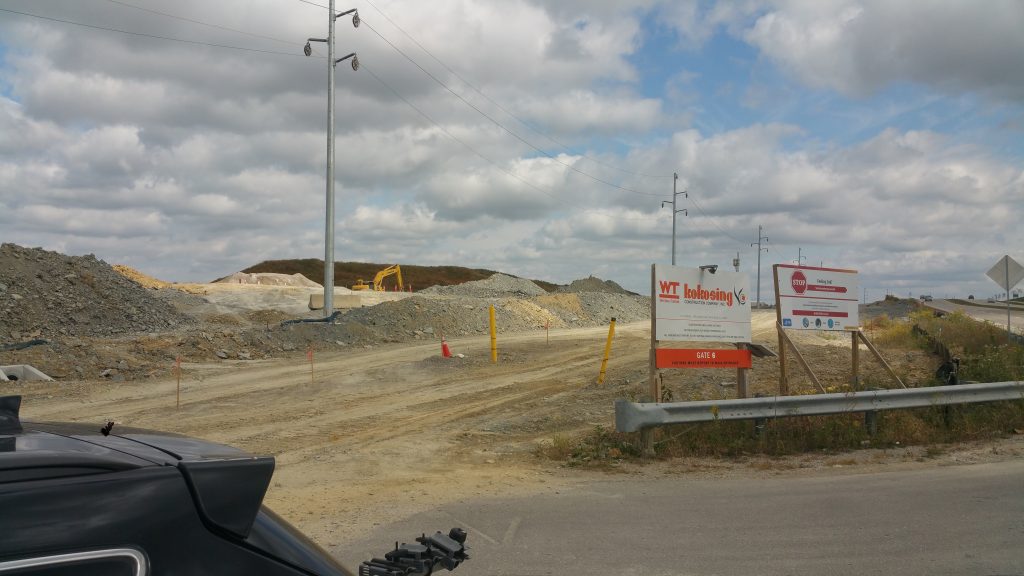
In the last decade Amazon has floated the idea of delivery products via drones. They have also started a subscription service known as Amazon Prime. One can spot their trucks on the road with the tagline, “There’s more to Amazon Prime, a truckload more”.
Their own Fleet
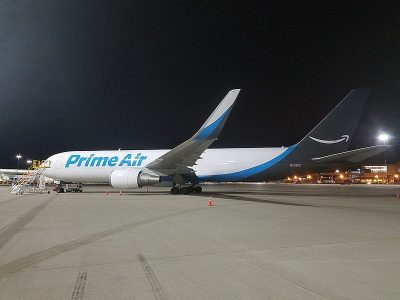
Amazon had traditionally relied on other overnight air carriers such as UPS, FedEx and DHL to transport goods around the country. In a bold move they have decided to try and cut out these middlemen. They desire to develop their own air fleet. Originally the fleet was named Prime Air, it was later changed to Amazon Air
They made their first purchase in 2016. As of this writing they have 60 aircraft: 17 737’s and 39 767s.
A New Hub
In 2019 Amazon broke grown on a new air hub located at Cincinnati/Northern Kentucky International Airport (CVG). Its headquarters are located inside the old Comair Headquarter Building. Just miles from my own home, Amazon is literally changing the face of the terrain around the airport.
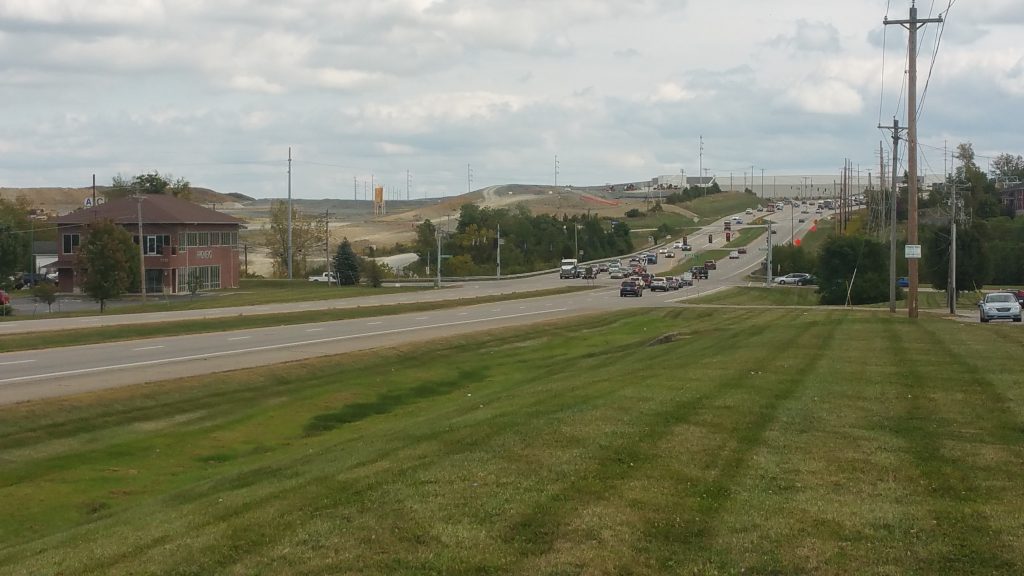
The first sign was the loss of a local icon. A rural piece of land had been a family owned farm for generations. Nestled among green oak trees and pastures with a white farmhouse, barns and a silo, down came the farm (and trees) in a matter of days.
The first clue was the county punching a road through the farm a few years ago, which was aptly named, “Aero Blvd”. The farm was doomed. Picture throughout this blog reveal the change in the terrain as massive warehouses are put in place. Hundreds of acres are involved, and this is only Phase I.
Amazon appears to have a goal of shipping most of their online sales through the air in their own aircraft. I commend Bezos on his vision and ambition over these past 25 years. At the same time, I have had sharp differences with Jeff Bezos over some of his comments on issues in the public square and comments towards Christianity.
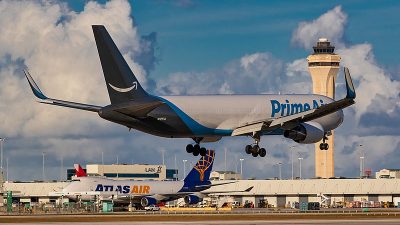
With Amazon’s spectacular rise and dominance of the online market, one wonders if eventually we will have the 21st Century’s equivalent of Standard Oil. John D. Rockefeller’s oil company was found to be a monopoly in the early 20th Century. Anti-trust legislation was passed to dismantle the company. Could we see the same thing with Amazon?
